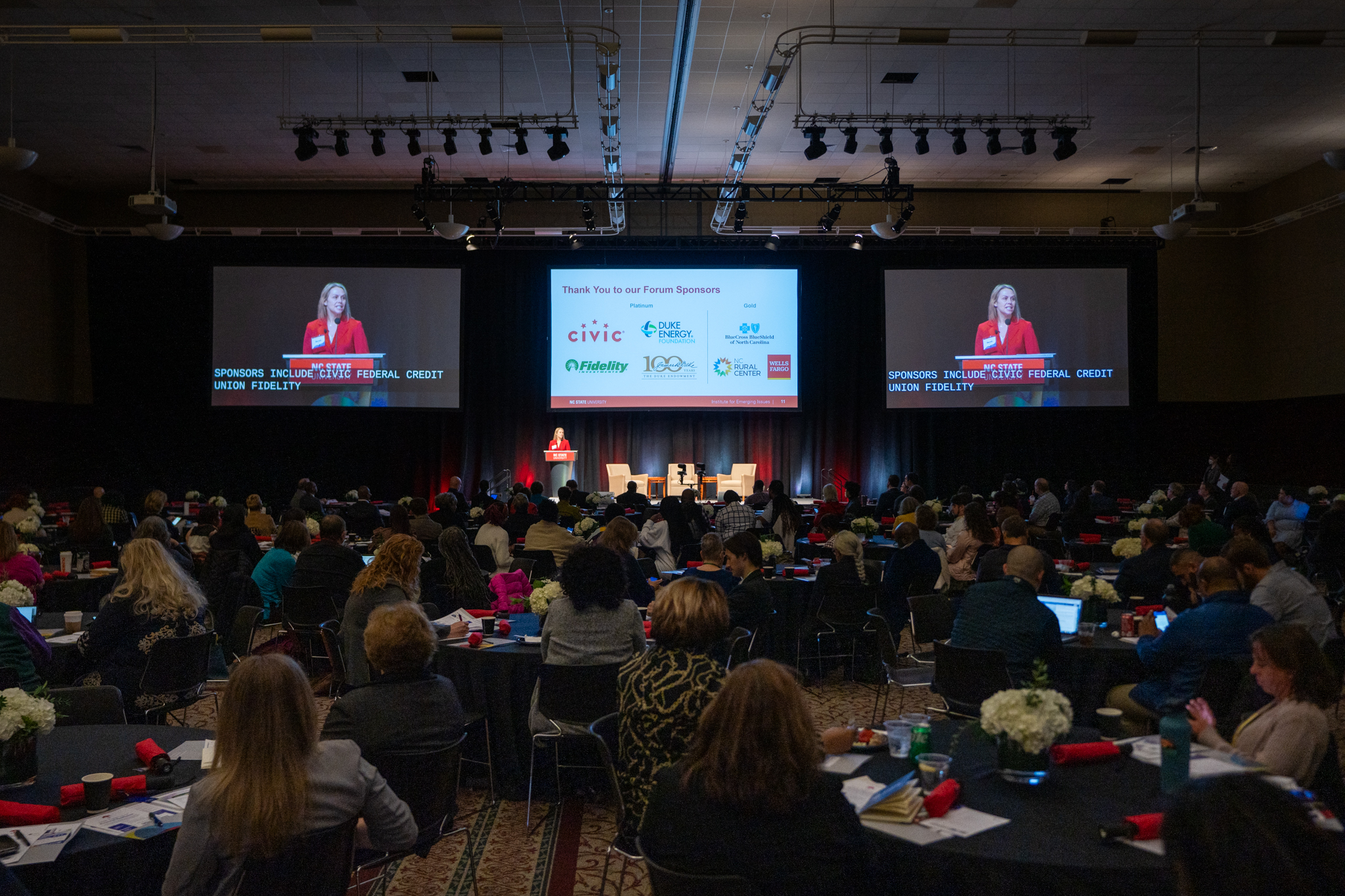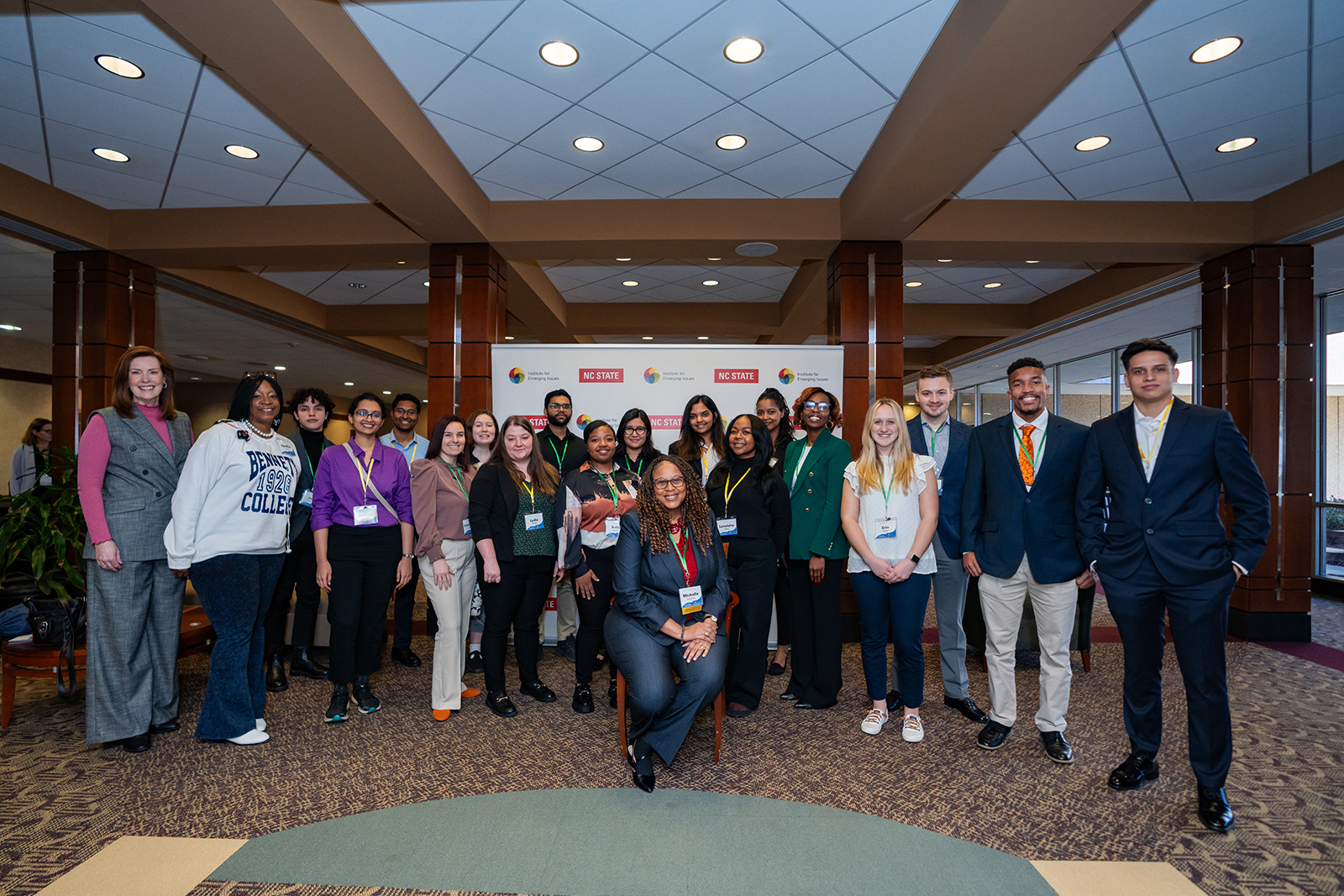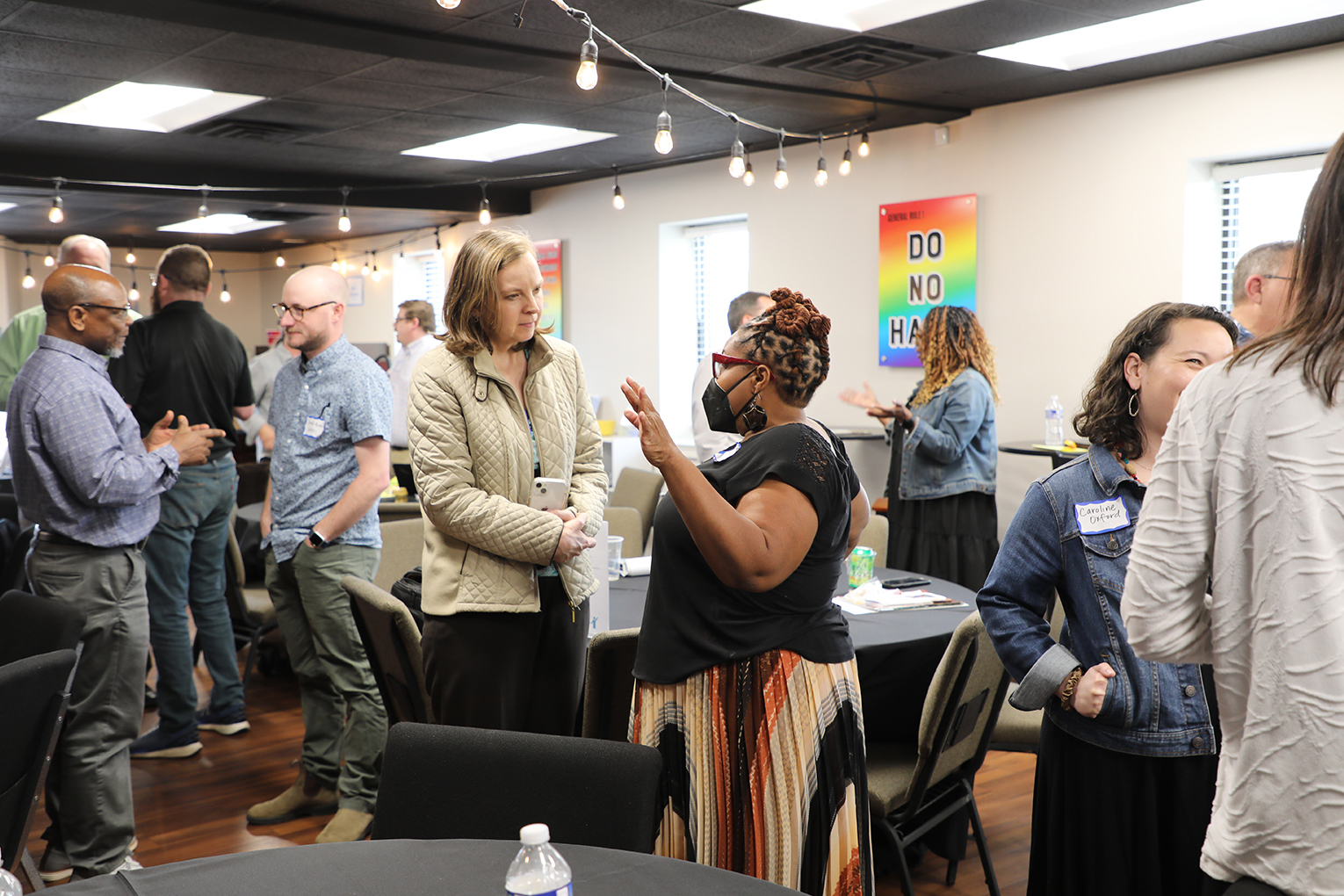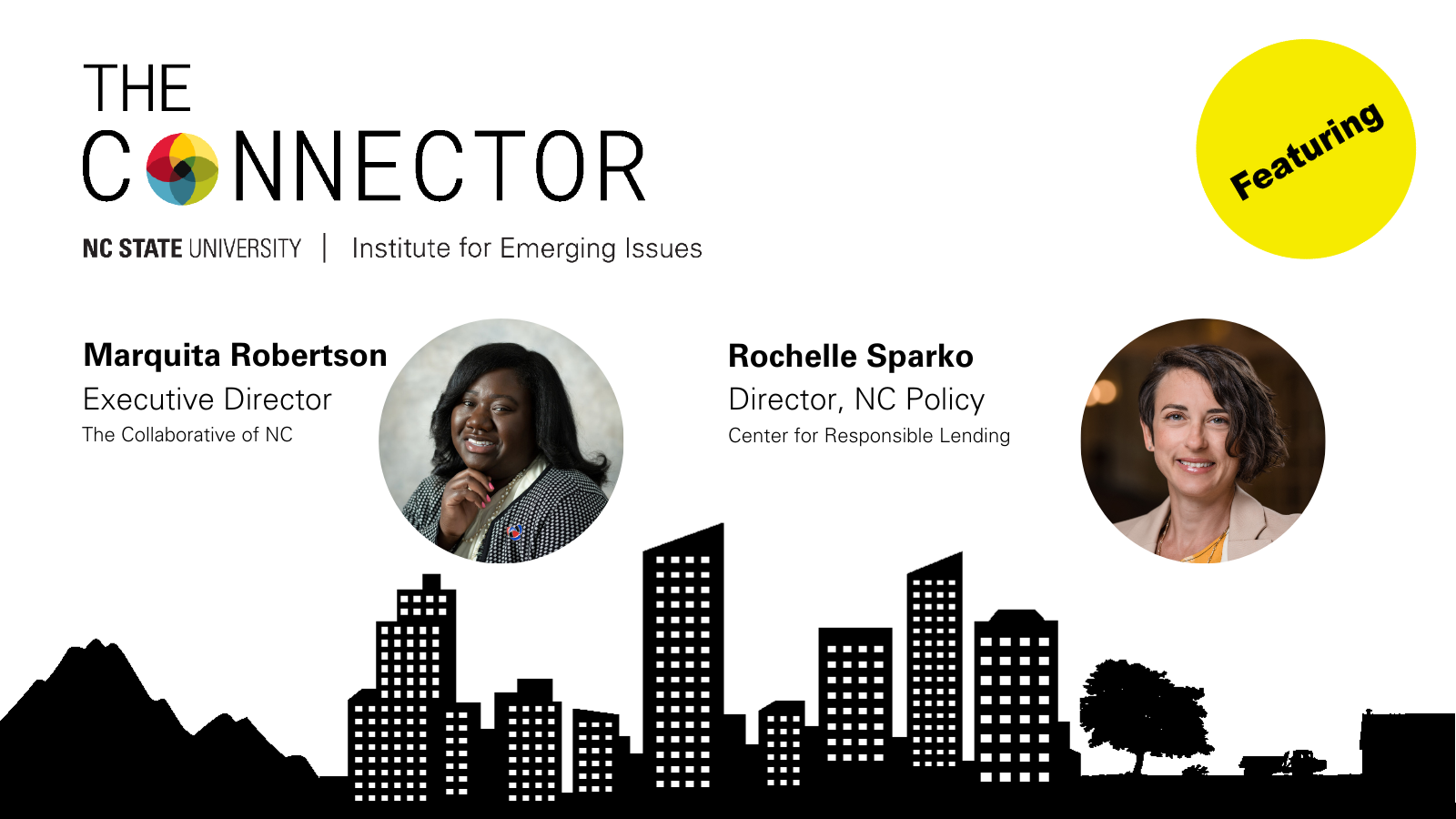The Institute for Emerging Issues (IEI) at NC State University held the 2024 Emerging Issues Forum on the topic of household financial resilience on Feb. 13 in Raleigh. Nearly 400 attendees from across the state gathered to examine and discuss how North Carolina families can withstand and recover from economic challenges. This was the final installment in IEI’s three-year forum series on supporting North Carolina’s Economic Resilience.
“Financial well-being is one of those topics that still feel taboo to talk about,” said IEI Director Sarah Hall. “At the 2024 Emerging Issues Form, we wanted people to not only talk about our collective financial journeys but to walk away with ideas about how we can increase financial resilience at scale for the betterment of our entire state.”
After NC State University Chancellor Randy Woodson and IEI Director Sarah Hall welcomed attendees to the forum, Michelle Singletary set the stage for the day with her keynote address. Singletary, award-winning author and personal finance columnist with The Washington Post, discussed the importance of, and challenges to, saving money. She also shared her experiences as a journalist, parent and personal finance coach with the audience.
“In this room are people who are dedicated to helping people live their best financial lives, and we do that by looking at the entire person. What’s going on, what’s their back story, why do they spend?” said Singletary from the forum stage.
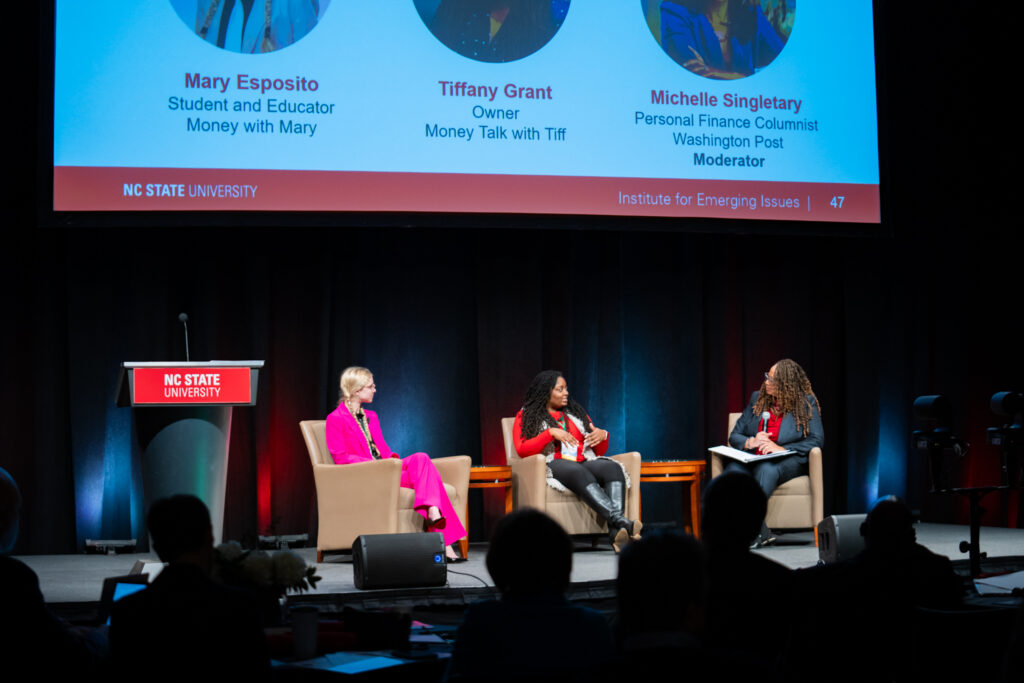
Following her remarks, Singletary moderated a panel with Mary Esposito and Tiffany Grant, two personal finance educators who use social media to connect with Gen Z and Millennials, respectively. They discussed the differences in educating various generations, introduced us to the term “edutainment” and shared tips for how organizations in the audience could reach the next generation of savers and investors.
Later in the morning, attendees heard from Mariel Beasley with Duke University’s Common Cents Lab about how psychology impacts the financial decision making of households – specifically: why we do the things we know we shouldn’t, and why we don’t do the things we know we should.
“We often think that ‘oh the reason my outcomes are the way that they are is because I care about these things, these are my values and my beliefs.’ And if somebody else is making poor choices, it’s because it’s not their values, their choices, their beliefs,” said Beasley. “But really, it’s that role of the environment that has a huge influence on how we operate within the world.” Singletary, so intrigued by Beasley’s remarks, focused her next column for The Washington Post on the topic.
Throughout the day, attendees heard from representatives with Civic Federal Credit Union and Fidelity Investments, as well as Bank of America, the Center for Responsible Lending, Goodwill Industries of the Southern Piedmont, MDC Inc., the NC Council on Economic Education, SaverLife, United Way of North Carolina and others about topics and initiatives related to financial resilience, including the state’s new financial education mandate, how technology is impacting our financial future, strengthening public and employer benefits, and more.
Breakout sessions gave attendees the opportunity to dive deeper into topics covered during the plenary sessions.
The forum wrapped up with a conversation between Senator Sydney Batch and Representative Stephen Ross about the expansion of Medicaid in North Carolina. Moderated by PBS North Carolina CEO David Crabtree, the two discussed how a bipartisan group of legislators made the expansion a reality and what it will mean for hundreds of thousands of North Carolinians who are now eligible for Medicaid.
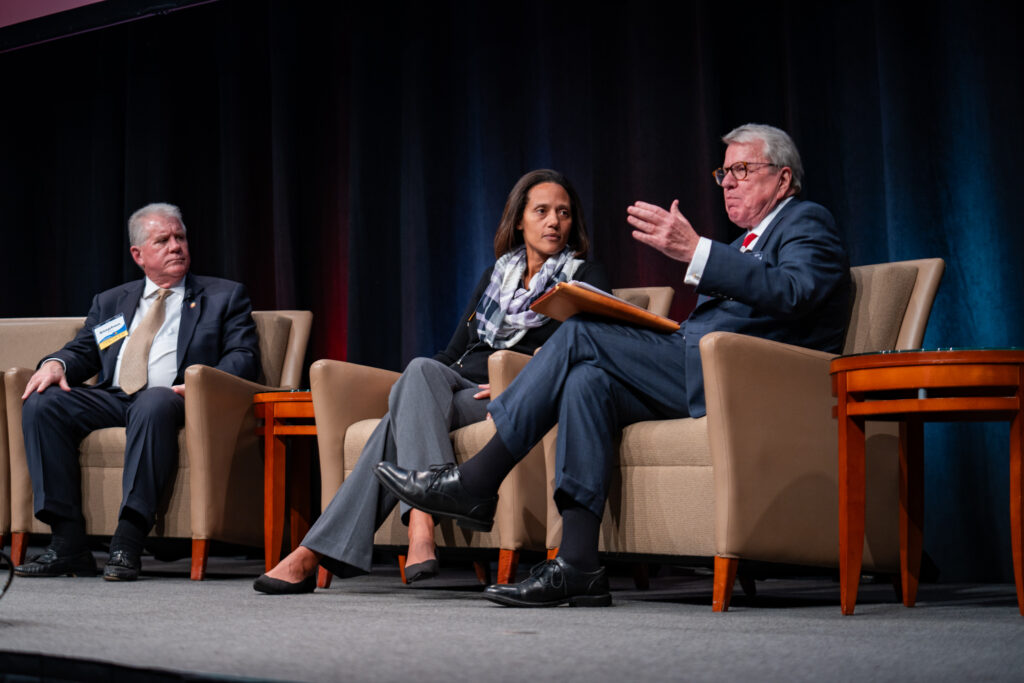
Hall ended the day by announcing IEI’s next initiative designed to keep the momentum of the day going long after the forum ends: the Financial Resilience Community Cohort. Five community-based organizations that work to increase household financial resilience – especially for communities with historically increased barriers to saving and debt management – will be selected for the cohort. They will work with IEI and each other over a two-year period to implement solutions that make them stronger and better equipped to serve their communities. Applications will be accepted through March 29.
About the Institute for Emerging Issues
The Institute for Emerging Issues at NC State University is a nonpartisan connector, bringing North Carolinians together to find solutions to the state’s emerging and most critical policy issues.
About the Emerging Issues Forum
Since 1986, the Emerging Issues Forum has attracted leaders in business, education and public policy to discuss issues with profound implications for North Carolina’s future prosperity. It has helped catalyze the policy reforms, public investments and other proactive responses required to build an enduring capacity for progress in North Carolina.
- Categories:
